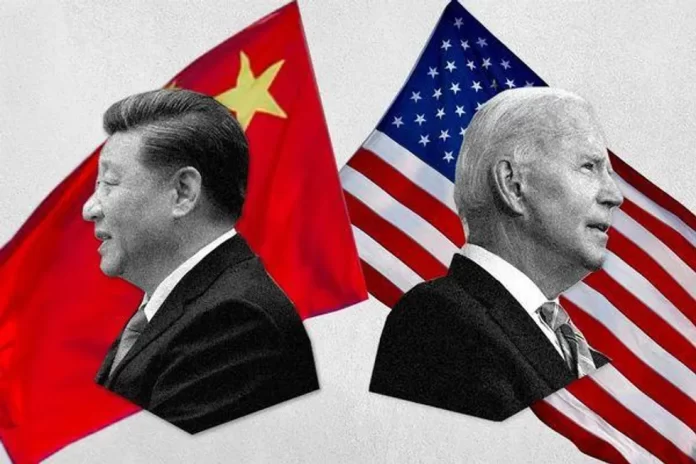With China, we are interacting on two levels. One is geopolitical, where tensions have been rising quickly, while the other is commercial, where consumers and businesses, play a significant role. Regardless of the recent Balloon incident, this week saw an all-time high record of $690 billion in US-China merchandise trade, exceeding the record set in 2018. However, if the next crisis between Beijing and Washington is bigger than a balloon, it might prove much harder to deflate.
On 7th February 2023, President Joe Biden stated in his state of the Union address that he would cooperate with China but vowed, “If China threatens our sovereignty, we will act to protect our country. And we did.” It was a hint towards a recent incident where (according to US officials) “A Chinese surveillance balloon” floated across the US.
In response to this, Fareed Zakaria, Indian- American journalist Washington Post, shared his take on how the Beijing government tried to downplay the whole episode, expressing regret initially and then using its censorship of media and social media to tamp down the flames of Chinese nationalism.
Furthermore, he mentioned how in 2001, an American spy plane collided with a Chinese jet fighter, killing the Chinese pilot. This resulted in the American plan to land on Hainan Island, where Chinese authorities took the crew into custody. However, in just eleven days, once the US issued a letter of regret, China accepted the apology and released the Americans (The Guardian, 2001). It is a prime example of how both countries had a stable bilateral relationship, contrary to the current time, where it’s unimaginable to picture having an issue resolved so smoothly and quickly between the two.
Also, Zakaria mentioned that the fascinating part about the whole situation is that while the two countries are at the peak of geo-political tensions, they remain deeply interconnected economically. Regardless of the Balloon incident, this week saw an all-time high record of $690 billion in US-China merchandise trade, exceeding the record set in 2018. (U.S. Bureau of Economic Analysis report, 2023). Given the current situation where Tariffs imposed by the then-Trump Administration on Chinese goods worth $370 billion (BBC report, 2019) mostly remain, this is no small achievement. It also counteracts the Biden administration’s new rules preventing trade in certain high-technology items with the People’s Republic.

“The record-high bilateral trade flows for 2022 underscore that despite the steady imposition of export controls and the continuation of the Trump tariffs, commercial ties between the United States and China remain strong,” said Wendy Cutler, vice president at the Asia Society Policy Institute and a former acting deputy U.S. trade representative.
With China, we are interacting on two levels. One is geopolitical, where tensions have been rising quickly, while the other is commercial, where consumers and businesses, not governments, play a significant role, stated Zakaria.
That relationship remains deeply intertwined and interdependent. Can these two realms continue to move forward while working at cross purposes? It seems highly unlikely.
He also highlighted a prime example of China helping the US from financial turmoil. In 2008, Hank Paulson, a former US Treasury Secretary, stated that solid relations with China helped Washington avoid another Great Depression during the global financial crisis (New York Times, 2008). Not only that, China held a massive amount of American debt, including American housing bonds issued by Fannie Mae and Freddie Mac. If Beijing had sold those, the American economy would have gone into a downward spiral with global repercussions. However, Washington, convinced Beijing not to sell, and China instead utilized its financial and monetary power to boost the world economy.
Meanwhile, this week’s news surfaced stating that the US. Strategic Command (which oversees the US. Nuclear arsenal) informed Congress that China now has more land-based fixed intercontinental ballistic missile launchers than the US. (CNN, 2023) Although it still has significantly fewer nuclear warheads than the US, a Pentagon assessment from last fall indicates that it will more than triple its stock by 2035. Hence, it seems likely that the geopolitical tensions will further deteriorate from here on.
Last but not least, he mentioned the case of Taiwan, if House Speaker Kevin McCarthy does travel to the island and, even more provocatively, announces support for Taiwanese independence, the situation will surely intensify between the two countries even more.
In 2024, Taiwan will conduct presidential elections. Due to term limits, President Xiing Wen is not eligible to run again, but her party has chosen a candidate who describes himself as a supporter of Taiwanese independence. (The Diplomat, 2023). According to current public opinion, most Taiwanese do not favor independence, preferring the ambiguous status quo that has allowed them to prosper. But even that could alter if Beijing’s pressure increases, stated Zakaria.
There are now few barriers between Washington and Beijing to prevent issues from worsening. Contrary to Russia, China, and the US do not yet have bilateral arms control agreements or continuing security talks, according to Zakaria. Concerning crisis management, there are no military-to-military discussions. There is no dialogue between the two economic teams. If the next crisis between Beijing and Washington is bigger than a balloon, it might prove much harder to deflate.




